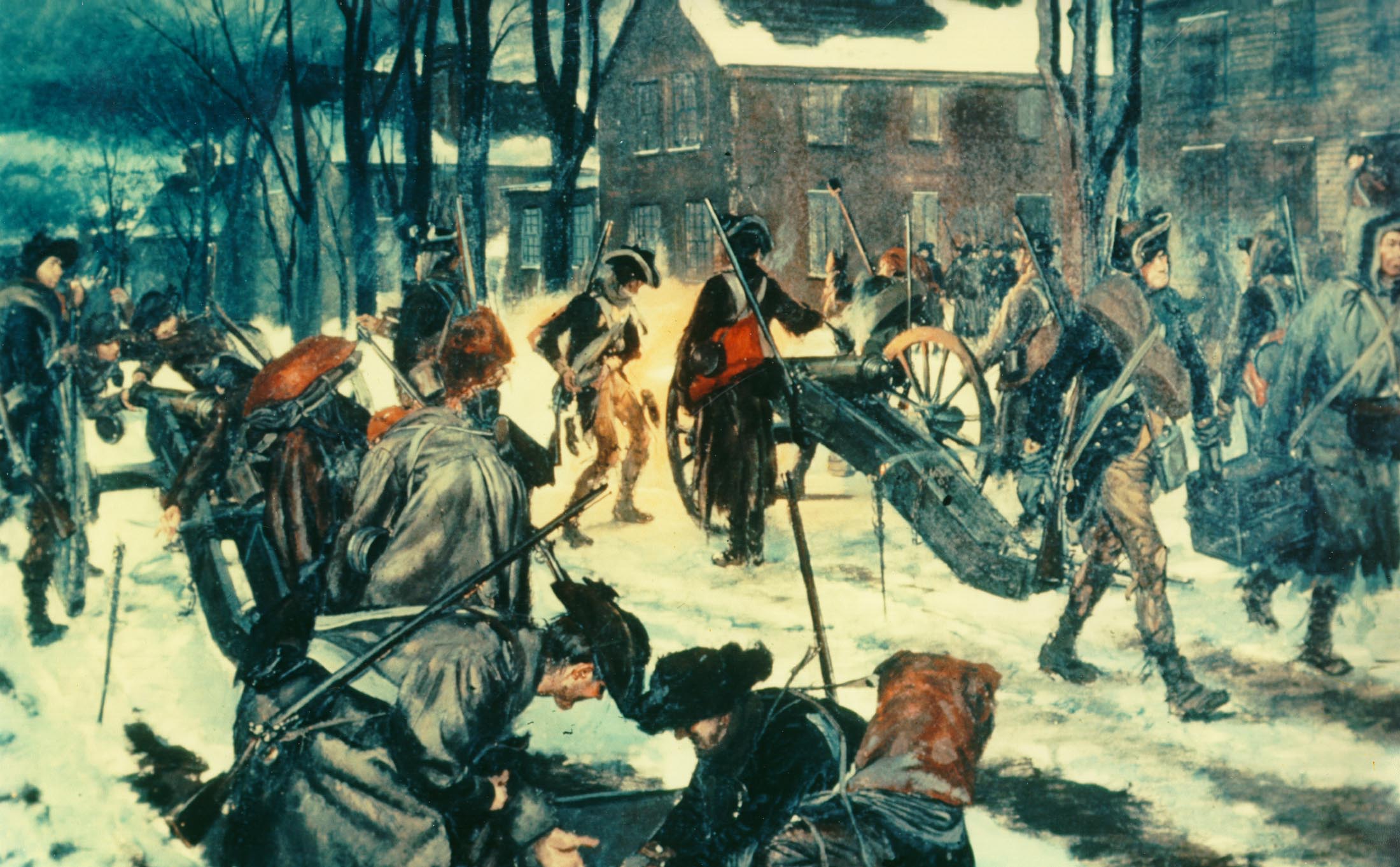


Next Document
Thoughts on Government
March, 1776
Conversation-based seminars for collegial PD, one-day and multi-day seminars, graduate credit seminars (MA degree), online and in-person.

No study questions
No related resources
Among the disaffected in Philadelphia, Doctor Kearsley was pre-eminently ardent and rash. An extremely zealous Loyalist, and impetuous in his temper, he had given much umbrage to the whigs; and if I am not mistaken, he had been detected in some hostile machinations. Hence he was deemed a proper subject for the fashionable punishment of tarring, feathering and carting. He was seized at his own door by a party of the militia, and, in the attempt to resist them, received a wound in his hand from a bayonet. Being overpowered, he was placed in a cart provided for the purpose, and amidst a multitude of boys and idlers, paraded through the streets to the tune of the rogue’s march. I happened to be at the coffee-house when the concourse arrived there. They made a halt, while the Doctor, foaming with rage and indignation, without his hat, his wig dishevelled and bloody from his wounded hand, stood up in the cart and called for a bowl of punch. It was quickly handed to him; when so vehement was his thirst that he drained it of its con-tents before he took it from his lips.
What were the feelings of others on this lawless proceeding, I know not, but mine, I must confess, revolted at the spectacle. I was shocked at seeing a lately respected citizen so cruelly vilified, and was imprudent enough to say that, had I been a magistrate, I would, at every hazard, have interposed my authority in suppression of the outrage. But this was not the only instance which convinced me that I wanted nerves for a revolutionist. It must be admitted, however, that the conduct of the populace was marked by a lenity which peculiarly distinguished the cradle of our republicanism. Tar and feathers had been dispensed with, and excepting the injury he had received in his hand, no sort of violence was ffered by the mob to their victim. But to a man of high spirit, as the Doctor was, the indignity in its lightest form was sufficient to madden him: it probably had this effect, since his conduct be-came so extremely outrageous that it was thought necessary to confine him. From the city he was soon after removed to Carlisle, where he died during the war.
A few days after the carting of Mr. Kearsley, Mr. Isaac Hunt, the attorney, was treated in the same manner, but he managed the matter much better than his precursor. Instead of braving his conductors like the Doctor, Mr. Hunt was a pattern of meekness and humility; and at every halt that was made, he rose and expressed his acknowledgments to the crowd for their forbearance and civility. After a parade of an hour or two, he was set down at his own door, as uninjured in body as in mind. He soon after removed to one of the islands-if I mistake not, to Barbadoes-where, it was understood, he took orders.
Not long after these occurrences, Major Skene of the British Army ventured to show himself in Philadelphia. Whatever might have been his inducement to the measure, it was deemed expedient by the newly constituted authorities to have him arrested and secured. A guard was accordingly placed over him at his lodgings at the city tavern. The officer to whose charge he was especially committed was Mr. Francis Wade, the brewer, an Irishman of distinguished zeal in the cause, and one who was supposed to possess talents peculiarly befitting him for the task of curbing the spirit of a haughty Briton, which Skene undoubtedly was. I well recollect the day that the guard was paraded to escort him out of the city on his way to some other station. An immense crowd of spectators stood before the door of his quarters, and lined the street through which he was to pass. The weather being warm, the window sashes of his apartment were raised, and Skene, with his bottle of wine upon the table, having just finished his dinner, roared out in the voice of a Stentor, “God save great George our king!” Had the spirit of seventy-five in any degree resembled the spirit of Jacobinism, to which it has been unjustly compared, this bravado would unquestionably have brought the Major to the lamp-post, and set his head upon a pike; but as, fortunately for him, it did not, he was suffered to proceed with his song, and the auditory seemed more generally amused than offended.

Conversation-based seminars for collegial PD, one-day and multi-day seminars, graduate credit seminars (MA degree), online and in-person.